MercoPress. South Atlantic News Agency
Tag: Jerome Powell
-
Tuesday, May 21st 2019 - 09:26 UTC
Corporate debts pose a “moderate” risk to US economy, says the Fed

The United States private sector's mounting debts pose a “moderate” risk to the world's largest economy, Federal Reserve Chairman Jerome Powell said on Monday.
-
Friday, May 3rd 2019 - 08:40 UTC
Fed leaves interest rates unchanged despite strong pressure from Trump for a cut
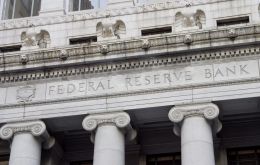
The US Federal Reserve has kept interest rates on hold despite pressure from President Donald Trump to announce a cut. The central bank said borrowing costs will remain at between 2.25%-2.5%.
-
Thursday, March 21st 2019 - 09:40 UTC
Fed confirms it does not expect to raise interest rates in 2019

The US Federal Reserve does not expect to raise interest rates for the rest of 2019 amid slower economic growth. After a two-day meeting, monetary policymakers voted unanimously to keep the US interest rate range between 2.25%-2.5%.
-
Thursday, January 31st 2019 - 09:15 UTC
Federal Reserve adopts “wait and see” policy. Economy facing contradictory picture of crosscurrents, says Powell
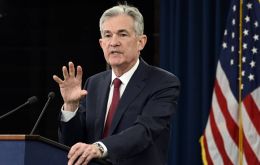
The Federal Reserve on Wednesday signaled its three-year-drive to tighten monetary policy may be at an end amid a suddenly cloudy outlook for the U.S. economy due to global headwinds and impasses over trade and government budget negotiations.
-
Saturday, January 5th 2019 - 08:40 UTC
Fed brings relief to markets saying it would be “patient” about rate hikes
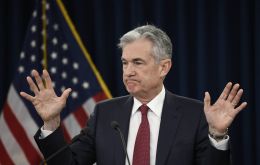
Federal Reserve Chair Jerome “Jay” Powell took steps to reassure financial markets on Friday, saying that the US central bank would be “patient” about rate rises. He also defended his independence, saying he would not resign if requested by US President Donald Trump.
-
Thursday, December 20th 2018 - 08:59 UTC
Fed raises interest rate but lowers 2019 forecast to two hikes in 2019

The United States Federal Reserve raised its key interest rate on Wednesday for a fourth time this year but lowered its forecast to two hikes in 2019 amid the recent stock market sell-off and uncertain growth prospects.
-
Wednesday, October 24th 2018 - 08:34 UTC
Trump again bashes the Fed, saying it posed the biggest risk to the US economy
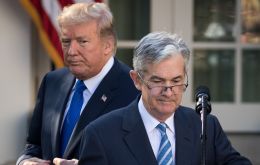
United States president Donald Trump has sharpened his attacks on the Federal Reserve, saying it posed the biggest risk to the US economy. He also targeted Fed chairman Jerome Powell, telling the Wall Street Journal he seemed “happy” to be raising interest rates.
-
Wednesday, September 26th 2018 - 21:13 UTC
Fed raises interest rate and announces a third increase this year
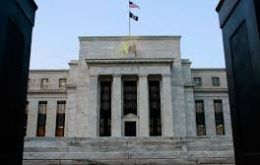
The United States Federal Reserve announced on Wednesday, after a two-day policy meeting, that it would raise interest rates for the third time this year. The decision, which had been widely expected, raised the federal funds rate by 25 basis points, to a range of 2% to 2.25%.
-
Sunday, August 26th 2018 - 04:35 UTC
Argentina's Peso falls 1.42% on Friday, despite a weaker dollar following Fed's Powell speech
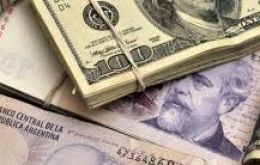
Argentina’s peso currency fell 1.42% to a record low close of 30.92 per dollar on Friday, weighed down by an economy slipping into recession, high inflation and uncertainty driven by corruption investigations.
-
Thursday, August 23rd 2018 - 08:52 UTC
Federal Reserve ready to raise interest rates, according to minutes
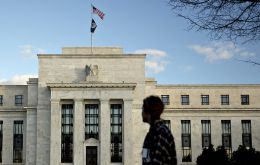
United States Federal Reserve officials discussed raising interest rates soon to counter excessive economic strength but also examined how global trade disputes could batter businesses and households, minutes of the U.S. central bank’s last policy meeting showed.
